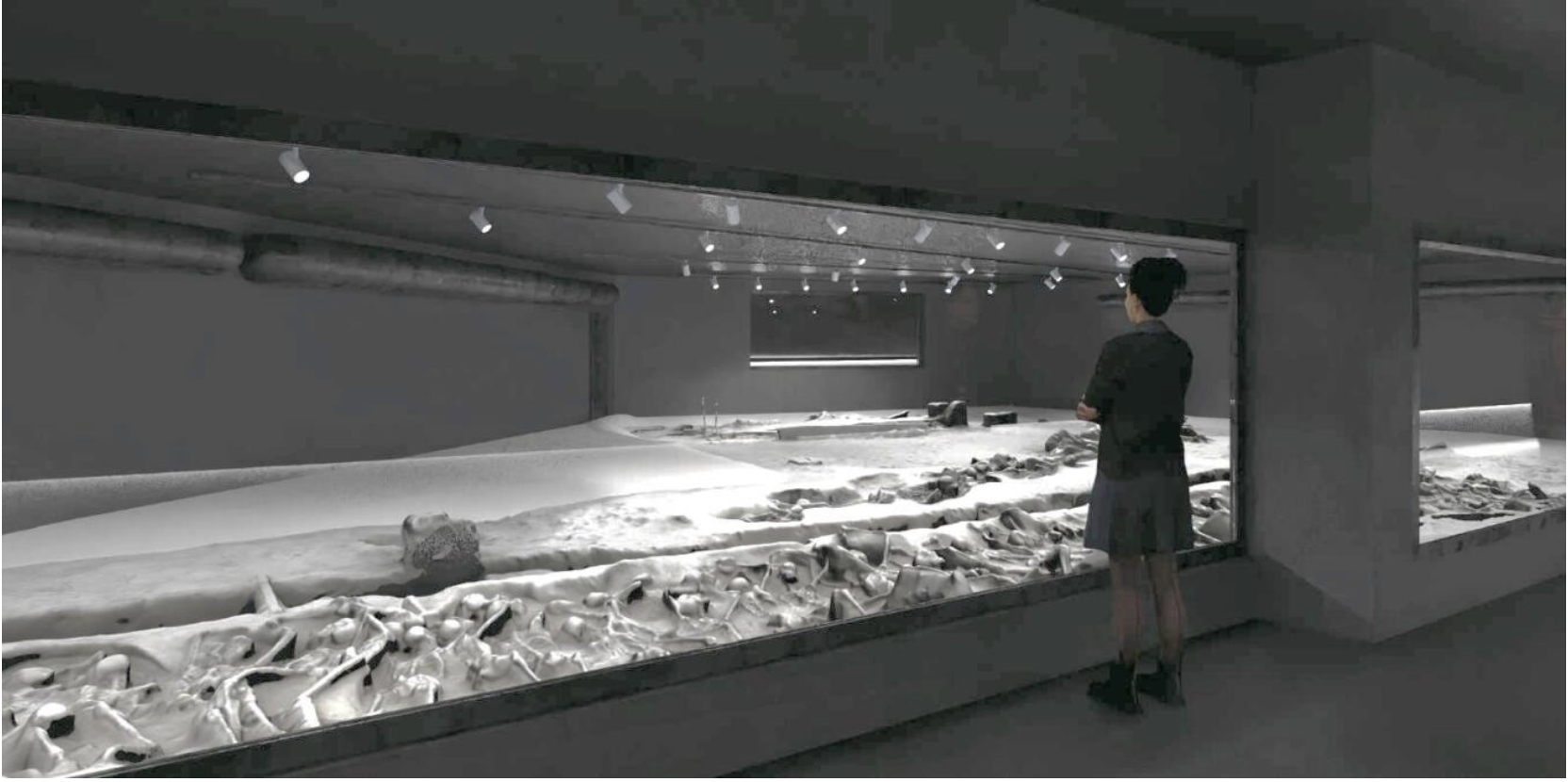In 2023 we had a double election. The first, in May, was under the system of proportional representation and, as expected, did not give New Democracy any self-reliance. The second, in June, was held under the law passed by the government of Kyriakos Mitsotakis in 2020 that provided for a tiered bonus for the first party. In the election, ND received 40.56% and, securing the entire bonus (50 seats) elected 158 deputies. The next elections will be held with the same law or maybe with another one that will lower the threshold of self-reliance possibly even below 35%.
Scenarios
Scenarios – in light of the polling data that make self-reliance almost unattainable – are coming and going. The debate was sparked by the deputy prime minister and health minister. Adonis Georgiadis, who advocated a majority system, citing Britain as an example, where the first party, Labour, formed a comfortable majority with just 33.6% of voters. Government spokesman Pavlos Marinakis and Interior Minister Thodoris Livanios refuted this. The Prime Minister did the same, in a recent interview. But he added seven words (“unless the opposition requests it”) that leave the matter open. And the opposition – namely PASOK – asked for it. Its press spokesman Konstantinos Tsoukalas said: “We are positive about an electoral political coalition getting the bonus if it comes first in the national elections.” He added: “We are not in favour of raising the threshold for entry into parliament.” Three months ago, however, PASOK, through the mouth of Nikos Androulakis, had a different view. “Changing the election law constitutes a confession of defeat or fear of defeat by the New Democracy,” the head of Charilaou Trikoupis was saying.
At the time, PASOK was the third party, had not become the official opposition, nor had it soared in the 17% polling range. And, most importantly, even its most optimistic supporter could not conceive that an electoral coalition of progressive parties could take the lead away from ND. Now, with the government’s poll decline, the rise of PASOK, and the liquidation of the formerly united SYRIZA, some do not rule out the possibility that there could be, even if only a faint light for a change of government at the bottom of the electoral tunnel.
When PASOK opens the issue of the election law, it is not for the first election, but for the ones that will follow if, which is most likely, the first party does not have self-reliance. It will run alone in the elections and depending on the result will go into an electoral partnership with SYRIZA and New Left (since it is highly likely that these two parties will have already formed a coalition) to bring about a change of government. This is why he wants the electoral law changed so that the coalition of parties also gets the bonus. It does not because it is already a coalition of parties with KIDESO, EDEM, and various collectives with references to Social Democracy and the Democratic Left. It is doing it so that the so-called plural center-left can form an electoral coalition. If it were simply so that PASOK could also get the bonus, it could amend its constitution and change from a coalition of parties to a single party.
As for… Alexis
Androulakis may not have the best of feelings for Tsipras, but on this issue, he could copy him. Do what Alexis did in May 2012. When overnight (between the two elections in May and June) he transformed SYRIZA from a multi-party coalition into a single party by abolishing the various components that made it up. Nikos could ask the constitutionalist George Sotirelis what he should do. Tsipras had done so in 2012, when SYRIZA in the May 2012 elections got 16.79% and ND 18.85%. If SYRIZA in the next election, in June, had come out on top, it would not have been able to get the bonus because it was a coalition of parties. So he called Sotirelis and laughed and said: “George, we might come out the first party and not get the bonus, what should I do?” And he did what Soterelis told him. He changed the party statute and SYRIZA became a single party. The truth of course is that this also served Tsipras politically. Instead of being the head of “irregulars” and negotiating every time with Lafazanis, Rinaldi, and Davanello about what he should do, he became the leader of a party – and a government party.
“If Androulakis just wants PASOK to get the bonus as well if he thinks he can become the first party, he has no choice but to change his constitution. It’s as simple as that,” a senior government official who knows the electoral stuff well tells us. Simple it may be, but it is not easy, since a problem with government funding and loan repayment may arise. If it becomes a single party, Harilaou Trikoupis will have to include the amount that goes to the other parties (KIDESO, EDEM, etc.) in the servicing of PASOK’s loan to the banks. But this too could be overcome, we are told by those involved in the legal and economic details of state funding and repayment of party loans.
Recommendations
For the record, at this point, we should note that in 2016 the then Interior Minister Panagiotis Kouroumblis accepted the recommendation of constitutionalists and recommended to the Council of Ministers the introduction of a bonus for the first party if its percentage was in the region of 40% and the difference from the second party was more than two points. The proposal was rejected by the staunch supporters of proportional representation, with the result that SYRIZA facilitated the arrival of ND and Kyriakos Mitsotakis in the governorate. We should also note that behind the case of “bonuses” to a coalition of parties, there is also some political “bullshit” since, according to the opinion of the late Aristovulus Manesis, the coalition of parties is also entitled to the bonus. The party/coalition that prevails if it appeals to the Electoral Court is considered certain to be vindicated.
Consequently, political games are being played around the bonus literature, and possibly these are being played to have – if necessary for government stability reasons – other peripheral changes to the electoral law to favour coalition politics between either Conservative or Progressive parties. Also, the electoral law could, instead of discouraging alliances, reward them, as in Italy. Meloni received an electoral bonus because the multi-party formation with a common government programme of which she was leader came first. In our country, because of electoral law, but above all because of the lack of a culture of cooperation, it is difficult to have an electoral coalition that can claim governmental self-reliance. Everything happens after the polls open and not before.
For example, consider what would have happened if in January 2015 Syriza had participated in the election in a joint formation with its later government partner, AN.EL. Most likely, such a “politically unnatural” coalition would not have won the election and the “First Time Left” would not have existed. Of course, if the prime minister were to change the electoral law, he would not do it for the sake of PASOK or SYRIZA. That is, a coalition of parties could also get the bonus if they came first in the elections. If he were to change it, his interlocutors say, he would either have to raise the threshold for entering parliament as well or, more likely, go for a total change of the electoral system. That is, to adopt the German system. The 150 MPs would be elected by a majority system from single-member constituencies and the other 150 proportionally from large constituencies, probably 13, as many as the existing ones.
The radical change of the electoral system has two advantages for Mitsotakis: on the one hand, it could also be perceived as an institutional/reform breakthrough, and on the other hand, he could not be accused of changing the electoral system solely in his party’s interest. Moreover, government officials closely involved in electoral matters argue that changing the electoral threshold from 3% to 5% “makes no sense”. It may even be harmful since it could strengthen the parties at the threshold. The impression that an attempt is being made to artificially put them out of parliament could strengthen them electorally. It is possible that the “small” parties, to survive in parliament, could overcome their big, it is true, egos and form a coalition, which would take votes away from the bigger parties, making the sudoku of a decree and governmental stability even more difficult.
Conflicting views
However, political analysts and experts on electoral congruence are divided on the question “what happens if the electoral threshold rises from 3% to 5%?” Most argue that the proportion of the unrepresented vote will be in double digits and possibly exceed 15% if parties at the 3% threshold are left out of the bridal party race, either up or down. We note that these parties (Eleftherias, Niki, New Left, Spartans, MPA25, and Voice of Logic) currently poll at around 17%. Question of being left out of the parliament due to inflated egos, Kasselakis, Varoufakis, Zoe Konstantopoulou, and possibly Latinoopoulou, who sees her party rising, act as a deterrent to partnerships with neighbouring parties) the threshold of self-reliance would fall below 35% and would not, especially in conditions of extreme polarisation, be an unattainable goal.
We note that the radical change of the electoral system, according to the prevailing view of constitutionalists, can be done by law and need not, as some argue, be included in the constitutional provisions under revision. This makes Mitsotakis’ task even easier if, given the time and developments, he changes his mind and agrees with the ministers who are suggesting, as he has admitted, to change the electoral law to avoid another double election in the spring of 2027. And he should become, if he wins the elections, the fourth Greek prime minister to be appointed “president” of the EU for six months, from June to December 2027. So far, Andreas Papandreou has had this privilege three times (1983, 1988, and 1994) Kostas Simitis (2003), and Antonis Samaras (2014) once each. Will Kyriakos want to be the fourth? And to achieve this, will he change the electoral law as he sees fit and in his interest? We will find out after the summer of 2026. Until then, he will stick to the rhetoric of the institutional player who does not behave opportunistically on the issue of the will of the voters on the prime minister and the party they want to govern them…
Ask me anything
Explore related questions





